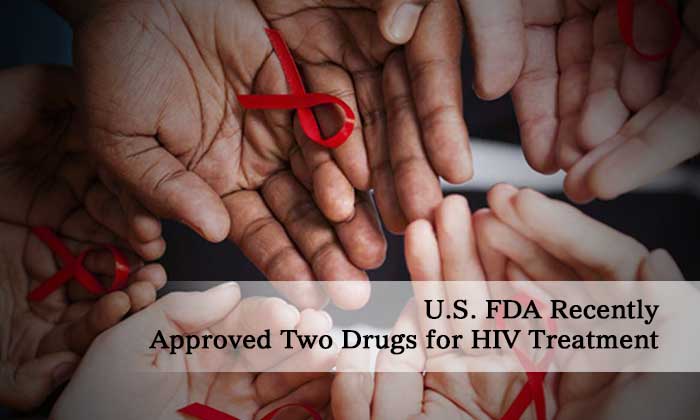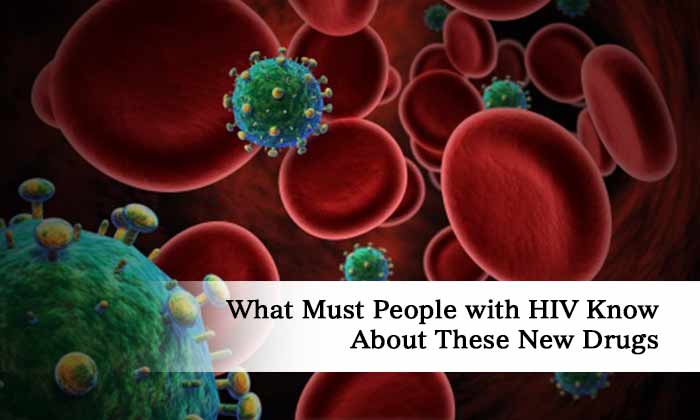
Will Two New U.S. FDA Approved Drugs, Change the Way HIV Is Treated?

Just last month, the U.S. Food and Drug Administration (FDA) approved two medications for treating HIV-1, most common strain of the HIV/AIDS virus. This latest announcement from FDA marks a novel development in newer treatment options for millions who are living with Human Immunodeficiency Virus.
It indicates that even more options are available to treat this virus, which made the made medical community struggle in understanding it, for around four decades of this global AIDS (Acquired Immunodeficiency Syndrome) epidemic.
On 30th August, major drug manufacturer Merck revealed that the U.S. FDA has approved its two new antiretroviral medications namely Pifeltro and Delstrigo.
These oral drugs are however only meant for HIV-positive adults who have not received any antiretroviral treatment previously. These medications are not for HIV patients who have already been receiving some kind of antiretroviral treatment for this health condition. Merck further informed that it would start distributing these medications to the patient’s in about a month’s time.
Dr. Carey Hwang, product development lead and executive director, at the Merck Research Laboratories, explained that the HIV virus is constantly evolving and there are a number of unmet requirements out there for people who are living with HIV; in terms of available treatment options. There is no specific treatment that works well for every single AIDS patient, so it is crucial that we provide patients and doctors with all the HIV treatment options that will allow them to customize specific regimens according to a patient’s requirements. Hwang stressed that this latest approval has opened new options for both HIV patients and physicians.
This particular FDA approval was out after a successful phase 3 clinical trials for Pifeltro and Delstrigo that involved around 700 patients for both of these drugs. Interestingly, these medications also showed lowered cholesterol levels as a surprising side effect.
Hwang asserted that this decision is very crucial as the people suffering from HIV should anyhow live longer. AIDS patients start showing signs of various comorbid issues that generally show up as people age for instance high cholesterol levels and a number of cardiovascular issues.
Fortunately, the population with HIV is aging and they are able to living much longer now. Hwang stressed that the statistics are also in accordance with this fact, if not already, majority of people who are living with HIV will become 50 or are elder. Hence, most probably, they will suffer from different comorbidities such as high cholesterol levels and all these issues people develop generally as they get older. Merck is not expecting any significant drug interactions with a number of medicines that are given for managing the associated comorbidities.
What Must People with HIV Know About These New Drugs?
Dr. Kristin Englund, an infectious disease physician, explained that similarly to any other medication, people who are looking for these U.S. FDA approved drugs must definitely discuss with their physician or health care provider about what would be the most appropriate treatment for them.
Figuring out a medication regimen is rather complex and generally depends upon a large number of factors like a patient’s medical disorders, possible side effects and the drug interactions, according to Englund. Now that several treatment options are available, starting with an antiretroviral treatment approach can work well with an individual.
While HIV often garners a spotlight in the news, complete awareness about HIV still remains fairly misunderstood by the public.
Let’s understand what are the antiretroviral medications.
Antiretroviral medications are the drugs that are specifically designed to help treat a number of retroviruses such as HIV. A retrovirus’s genetic makeup contains RNA rather than having a DNA. When this retrovirus infects a body cell, it uses certain enzymes to convert the RNA into DNA, thereby mixing its DNA material with the original DNA material of an otherwise healthy body cell. This enables the retrovirus to significantly replicate and multiply, according to the U.S. Department of Health and Human Services. [1]

Medical Community Still Searching For That Ultimate HIV Cure
It is rather crucial to note that medications such as Pifeltro and Delstrigo cannot cure HIV. Unfortunately, there is still no cure of HIV at this moment. Having said that, adhering to a strict antiretroviral therapy treatment, which involves consuming combination of these medications, can allow HIV infected people to still lead an almost healthy life.
Antiretroviral therapy has fortunately led to a significant drop in the HIV and AIDs associated deaths. According to the Centers for Disease Control and Prevention (CDC), by adhering to the antiretroviral therapy, people living with HIV can eventually achieve an “undetectable” viral count, such that they would not effectively transmit this virus to their sexual partners. [2]
HIV has definitely taken a toll as millions are suffering from this life-threatening health condition. The World Health Organization (WHO) estimated that around 70 million people have been infected with this virus and staggering 35 million have died due to HIV-related diseases since this epidemic first made an appearance in the 1980s. [3]
Hwang believes that it is rather exciting time to have these FDA approved HIV drugs available. He further asserts that there will be a string of continued breakthrough innovations for treating HIV infection. Englund expressed that these new medications have drastically changed the HIV treatment approach.
He said that the past decade has bought in myriad of remarkable advances in the HIV treatment, with single tablet treatment regimens and more effective medications that have much fewer side effects and prolonged health risks. Now, thankfully it will be possible for people living with HIV to just have one pill each morning and have a great day free of any associated side effects.
Englund however believes that in future, HIV medications might no longer need to be taken daily but bimonthly.
The treatment would certainly get better as these injectable antiretroviral drugs will be given just once or twice monthly or bimonthly. Englund wrapped up saying that this wouldn’t even take five years to have these kinds of HIV medications around.











